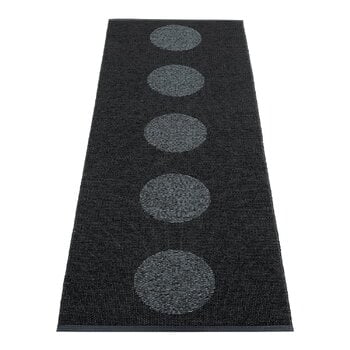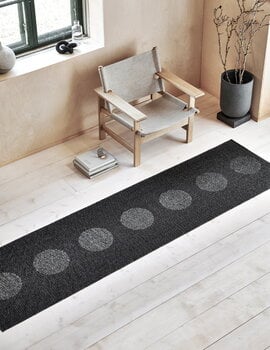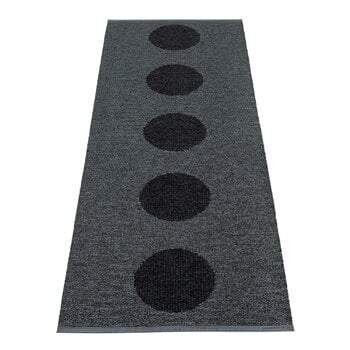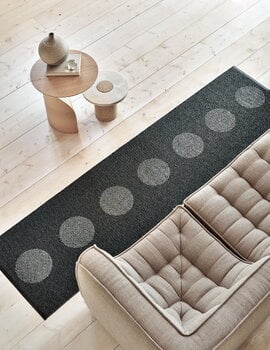Pappelina's Vera 2.0 rug is patterned by a row of large dots, adding a simple yet bold flair and a gentle metallic sheen to any decor. A two-sided design equals double the fun: you can flip the carpet over when you feel like it’s time for a new colour. The rug's edges are reinforced and welded for extra durability, and you can wash the rug by hand or in a washing machine.
The main material of the Vera 2.0 rug is Biovyn, a bio-attributed PVC that is made from wood-based tall oil, a residue from the wood industry. The carbon footprint of Biovyn is more than 90% smaller compared to conventional PVC. The sustainably produced plastic rug is easy to clean and makes a practical choice for all spaces. Due to its narrow form, the rug can easily be put to use as a stunning hallway runner, a kitchen area rug or an outdoor rug. The Vera rug is woven using traditional techniques in Dalarna, Sweden.











